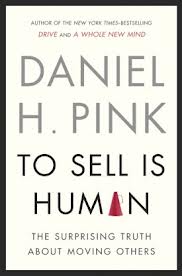That old sales technique…
We’re not selling, we offer an opportunity to buy… eh?
I had to laugh, sorry. I was listening to an item on Radio 4 about how temporary workers are being sold insurance that they either don’t need or won’t pay out. Now we’ve all heard this stuff before… PPI springs to mind for starters. I admit that I know nothing about this sort of insurance (accident cover, for temporary workers) but of course I do have a pretty good handle on financial protection. Anyway I was amused to listen to the defence that to the effect that “it is not being sold…. it is being offered” the “offering” techniques seem to be the same as any sales technique, but I hadn’t heard this excuse before. The important issue being that insurance being sold is a regulated activity and therefore needs proper disclosures etc to meet standards set by the regulator.
Call a spade a spade
Admittedly, I am have witnessed the process reported. Indeed I am reliant upon the information provided by the reporter, but frankly, the way it looks… if it walks like a dog, smells like a dog, barks like a dog, looks like a dog…. it probably is a dog. if not, then I think the regulator is in for some testing times ahead… what would stop all advisers simply saying that they are offering pensions, investments etc… and therefore not selling them (arranging may be a more palatable term). I imagine that the regulator would have something to say and demand compliance and payment of their fees. So I assume and hope that the FCA apply similar logic to those merely making such “offerings” or “opportunities to buy”.
Everyone sells, but there are still lots of grubby sales techniques
It seems that many people don’t like the term “selling” yet we all do it. Yes all of us. Selling is merely persuading someone to make a choice. Ethical or good or “proper” selling is therefore persuading people to make choices to their personal or collective advantage. We all do this a lot of the time as Daniel Pink illustrates so well in his book “To Sell Is Human”. Without actual “selling” nothing much would happen and we certainly wouldn’t have a recognisable economy. However clearly there are many that sell (or try to) unethically. I was disappointed to receive an email this week offering to sell me names, addresses and full contact details of people that may have had PPI “second use PPI hot key leads” . In fact it made me cringe (ok perhaps range)… I can buy (anyone can) 100,000 for £6,500. I don’t buy leads, but of course what arrives in my email box (initially) is open season. If you are anything like me, you are fed up with the banks that sold it and the claims companies that keep texting, emailing or phoning. They are an utter nuisance and ought to be banned.
Dominic Thomas: Solomons IFA






